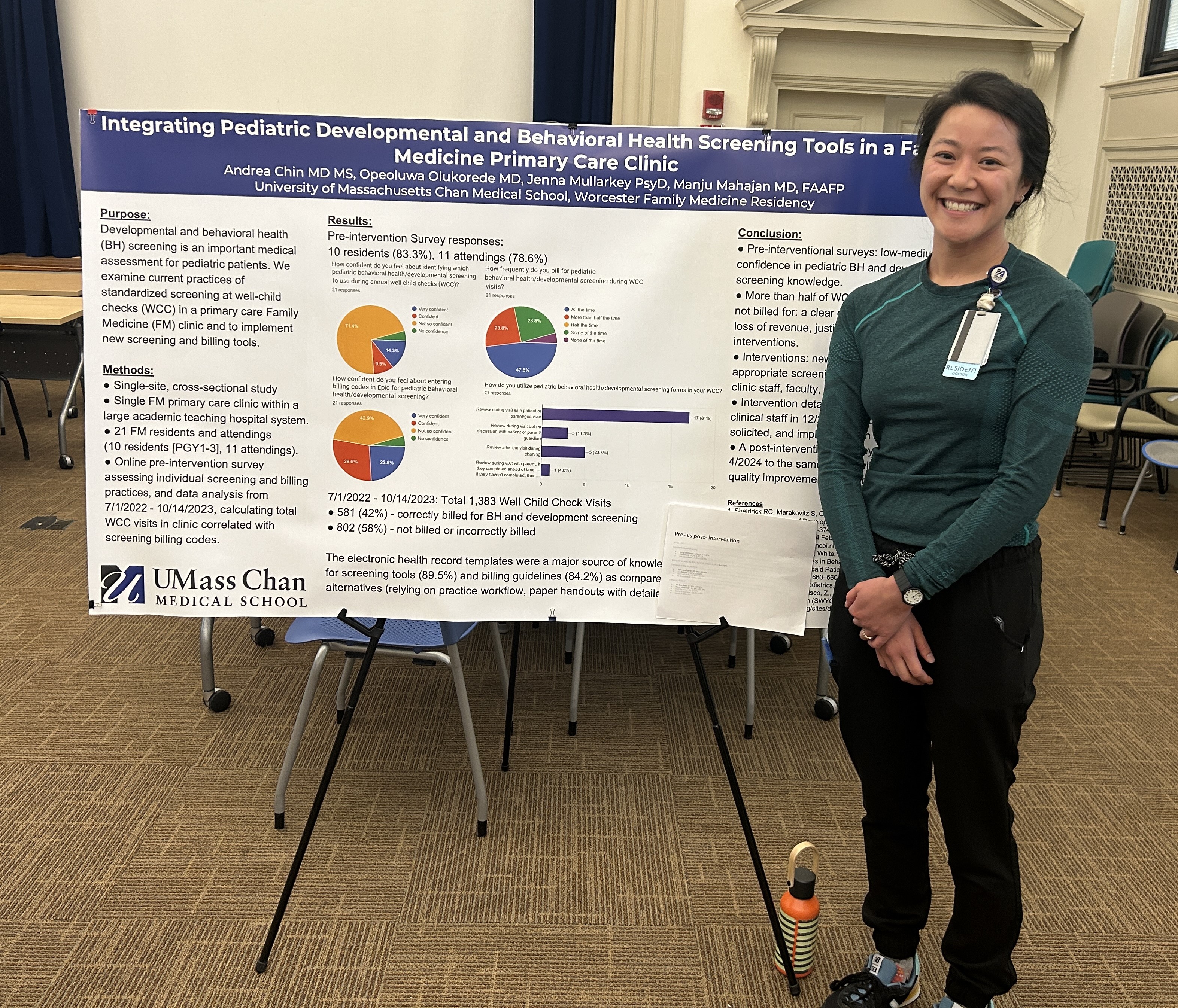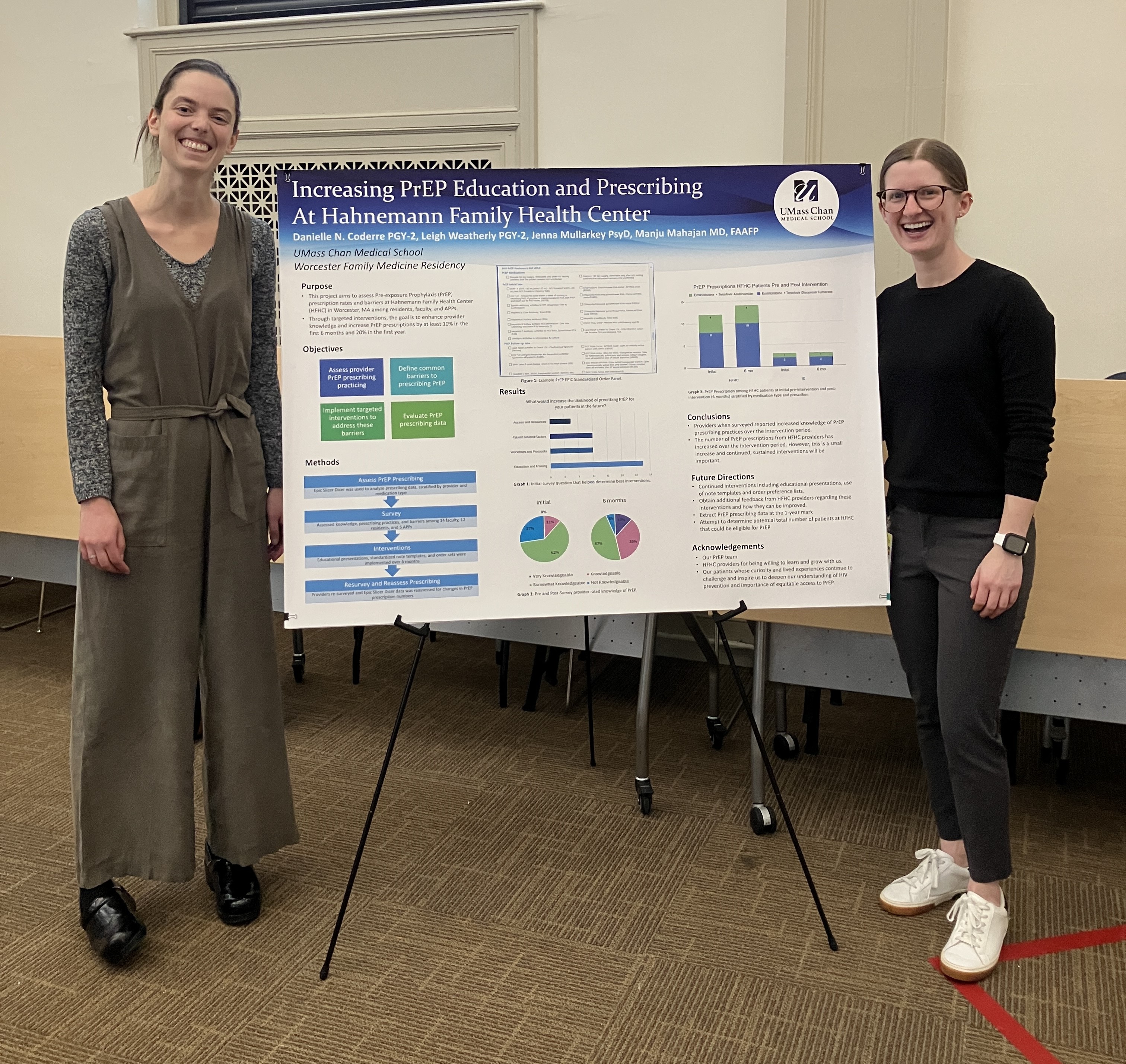Resident Research/Scholarly Projects
Community and practice-based projects are part of a longitudinal curriculum to develop skill in evaluation and pursuit of scholarly work. Residents are partnered with faculty mentors to work on community-based projects that they choose in a variety of outreach settings within local service agencies, schools and with community groups.
Through a variety of departmental resources they are shepherded through a research process. Practice-based quality improvement projects focus on implementing changes in the way we practice to optimize care. They provide residents with valuable experience in critical appraisal, problem solving and leadership skills. 
QI Research Projects (2024, 2025)
Optimizing Utilization of ‘Telehealth on the Fly’ for Resident Health Center Call
Increasing PrEP Education and Prescribing At Hahnemann Family Health Center
Addressing Gaps in Initial Prenatal, 28 Week and Postpartum Depression Screening: A Care-Team and Quality Improvement Based Approach to Increasing Screening Rates by 50%
Evaluation of a Mobile Health Clinic Model to Increase Treatment Completion and Cure Rate for Hepatitis C Infection
Intern Cards for Billing and Coding Optimization
Language Concordance in Postpartum Education
Referral Outcomes of a Social Drivers of Health Screening Program in an Academic Family Medicine Practice
Improving Communication Around Controlled Substance Prescribing at BFHC
Effects of Admin Time on Resident Wellness
Resident-Driven Development of a Social Determinants of Health Screening Program in a Family Medicine Practice
The 5-Minute Clinical Consult
Frank Domino, MD and Kathleen Barry, MD are two of three associate editors of this evidence-based medicine publication. Residents are offered the opportunity to author chapters for the 5 Minute Clinical Consult. This internationally known textbook is translated into several languages, and is integrated into a number of electronic health records.
Family Medicine faculty have especially strong representation in chapters pertaining to womens' health and reproductive medicine, oral health, and cardiovascular disease. Writing for a peer-reviewed publication serves the residency educational mission by improving the resident's ability to evaluate evidence and knowledge of the medical literature on a given topic, and by helping the resident understand the responsibility inherent in writing diagnostic and treatment recommendations that will be used by a vast audience.